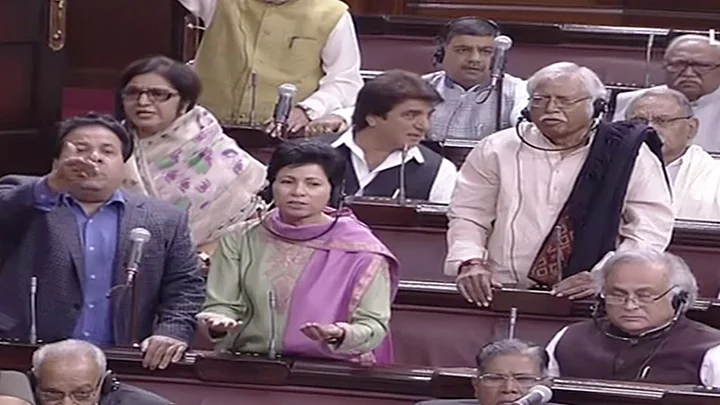The delay in the passage of key government bills in the Rajya Sabha has sparked discussions on the powers and working of the Upper House. At the end of the disrupted monsoon session of Parliament, the Leader of the House in the Rajya Sabha, Arun Jaitley, posed the question whether in a parliamentary democracy the wisdom of a directly elected house is questioned by the indirectly elected house?
This question assumes significance in the light of media reports that the treasury benches might not gain a majority in the Upper House before the end of 2019. Does this mean that the government would be unsuccessful in piloting its reform agenda through Parliament?
In any bicameral parliamentary system the indirectly elected house serves different functions. Those in favour of a strong Upper House support their argument by emphasising that a second chamber helps check hasty legislation, allows for more scrutiny of government functioning and sharing of work between the two houses.
Indispensable Upper House
- A strong Upper
House checks hasty legislation and allows greater scrutiny of
government functioning
- Rajya Sabha ensures that the states get to have their voices heard in Parliament
- Constitution framers intentionally did not give the Upper House any budgetary
powers to allow smooth government functioning
- The debate should
be focussed on establishing mechanisms to ensure certainty in the legislative
process
Why Dispense With Rajya Sabha?
The argument for curbing the powers of the Upper House or totally dispensing with it is that it may delay/hinder progressive legislation in the garb of greater scrutiny of legislative proposals initiated by a popularly elected house. In our federal system the Rajya Sabha also ensures that the states get to have their voices heard in Parliament. And from the perspective of political parties it allows them to get experts elected who might not otherwise be able to secure the people’s mandate in a direct election.
Constitution Framers’ Wisdom
The Constitution framers ensured that the Rajya Sabha had the right quantum of legislative powers to ensure balance in law-making. They intentionally did not give it any budgetary powers so it could not constrain the agenda of a popularly elected government. They were cognizant of the fact that there would be political disagreement and impasses.
Their elegantly crafted solution was a joint sitting of both houses, which would give the Lower House an advantage in numbers. And their solution has stood the test of time. Over the last 60 years only three joint sittings have been called to break a legislative impasse.
They built in safety valves by ensuring that joint sittings could not be called for amending the Constitution. The idea being that on issues of constitutional amendment, political parties would necessarily have to come to the negotiating table. This also has worked. In the last two decades of our parliamentary democracy, we have passed several constitutional amendments without the ruling party enjoying a clear majority in the Rajya Sabha.
Rajya Sabha and Legislative Councils
The architects of our Constitution also recognised that at the federal level the indirectly elected house would need more powers. Therefore, they infused a differentiation between the powers of the Rajya Sabha and that of the legislative councils in states.
Unlike the Rajya Sabha, which has substantial powers to shape non-financial legislation at the national level, the legislative councils lack the constitutional mandate to do so at the state level. The Constitution gives legislative assemblies the power to override the suggestions/amendments to a legislation made by the legislative council.
Ensuring Certainty in Legislative Process
However, discussing the rationale, relevance and role of the Rajya Sabha in the current context is missing the woods for the trees. There is a need to look at the macro problem rather than the narrower issue of the current Rajya Sabha’s ability to delay government legislation. The debate should instead be focussed on establishing mechanisms to ensure certainty in the legislative process so that bills get scrutinised and passed by Parliament in a time-bound manner.
In our parliamentary system we only have the facade of a law-making process. It is not sacrosanct. When political parties agree on contentious bills it can be rubber stamped by Parliament without any debate. Should they disagree then bills can be passed even when the house is not in order and under 15 minutes. The anti-defection law has reduced our legislators to a number on a screen with no independent voice on national issues.
So, the tougher questions that need answering is can we have a law making process which is not malleable to political convenience?
(The writer is head of Outreach, PRS Legislative)
(At The Quint, we question everything. Play an active role in shaping our journalism by becoming a member today.)
